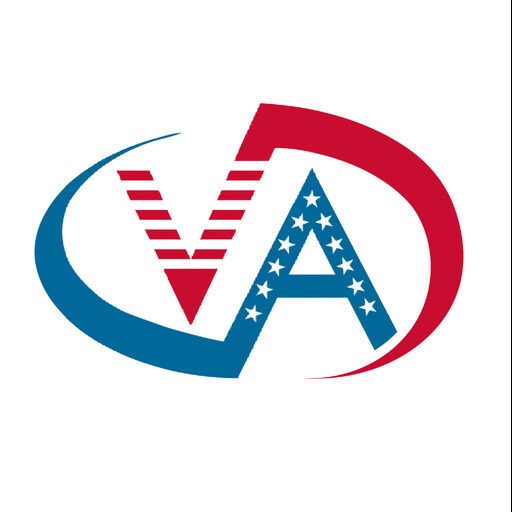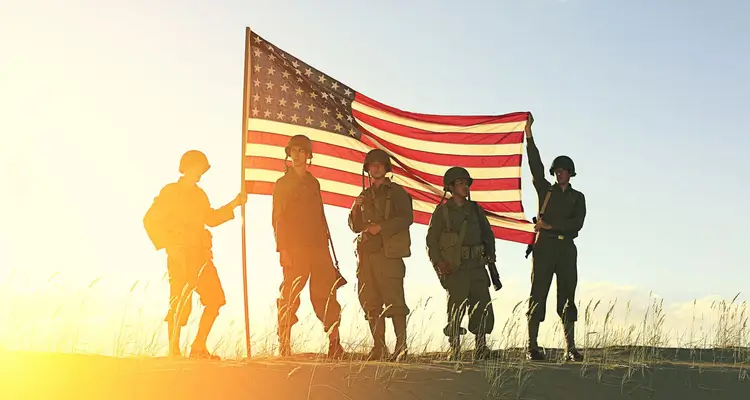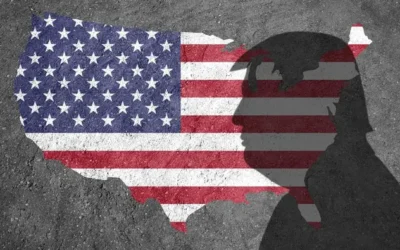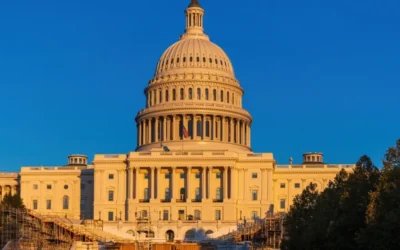Veterans Day has its origins in Armistice Day, celebrated in 1918 at the end of World War I. It was eventually developed into a day of thanksgiving and remembrance for all U.S. military members.
On May 2nd, former President Donald Trump created a furor by suggesting that Veterans Day be renamed “Victory Day for World War I,” prompting concern among Veterans’ groups over leaving out those who fought in subsequent wars.
Public protest and constitutional challenges forced the White House to promptly retract the plan and proceed instead to issue a commemorative proclamation. The article discusses the historical, political, and cultural implications of the proposal.
Overview: The Controversial Proposal
On May 2, 2026, President Donald Trump announced a bold plan to rename Veterans Day—observed annually on November 11—to “Victory Day for World War I,” while designating May 8 as “Victory Day for World War II.” Shared via Truth Social, the proposal aimed to highlight what Trump described as America’s historical military brilliance and restore “American greatness,” echoing previous attempts such as Trump’s push to revert Mount Denali to Mount McKinley.
However, this move quickly raised alarms among Veterans’ groups and political analysts who argued that it undermined the inclusive nature of Veterans Day, which honors all individuals who have served, not just those from the World Wars. By May 3, the White House had reversed course, confirming that the holiday would maintain its current name and promising an additional presidential proclamation to celebrate the victories of World War I and World War II instead.
A Brief History of Veterans Day
Key Milestones
- 1918 (November 11): Armistice signed, ending major combat in World War I.
- 1938: Congress establishes Armistice Day as a federal holiday.
- 1954: Renamed Veterans Day to honor all American Veterans after World War II and the Korean War.
- 1971–1975: Briefly moved to the fourth Monday in October under the Uniform Monday Holiday Act, but reverted to November 11 in 1975.
- 2026: Proposed “Victory Day for World War I” (reversed).
Originally known as Armistice Day, the holiday was instituted in 1938 to commemorate the formal end of fighting in World War I on November 11, 1918. In 1954, in response to Veterans’ advocacy, Congress renamed it Veterans Day to recognize the growing number of Americans who served in World War II and the Korean War. Ever since, November 11 has been a day to honor all U.S. military Veterans regardless of era or conflict.
Why Did Trump Propose Renaming Veterans Day?
- Motivation and Rhetoric: According to Trump’s Truth Social post, America “doesn’t celebrate its victories enough,” referencing Allied celebrations for May 8 (Victory in Europe Day). Trump argued the United States should follow suit, marking a specific day for each major victory—World War I on November 11 and World War II on May 8. His stance aligned with his broader platform of restoring “American greatness,” similar to his effort to rename Mount Denali back to Mount McKinley.
- Overlooked Realities: Critics immediately pointed out that Veterans Day was explicitly designed to include all Veterans. By focusing solely on World Wars, the plan would exclude Veterans from Vietnam, Iraq, Afghanistan, and countless other conflicts. According to data from the U.S. Department of Veterans Affairs, of the 15.8 million living Veterans, only around 66,000 World War II Veterans remain. The proposal thus risked marginalizing over 99% of the Veteran population.
Arguments For and Against the Renaming Proposal
- For: Heightened National Pride. Proponents said emphasizing “Victory Days” would highlight American military prowess and unify citizens around historical triumphs.
- Against: Exclusion of Modern Veterans. Over 99% of living Veterans served post-World War II, making the proposed name change feel alienating and dismissive.
- For: Alignment with Allies. Trump pointed to nations like France and the UK, which mark Victory in Europe Day on May 8.
- Against: Legal Complexity. Renaming a federal holiday requires an act of Congress (as stipulated in Title 5 of the U.S. Code), not just a presidential decree.
- Against: Historical Oversight. Trump’s emphasis on May 8 ignored the importance of V-J Day in August 1945, when the Pacific Theater concluded.
Legislative Process for Renaming Federal Holidays
Many are unaware that the U.S. President alone cannot legally rename a federal holiday. This authority belongs to Congress, as established by laws governing national observances (primarily found in Title 5 and Title 36 of the U.S. Code). Previous alterations to Veterans Day have undergone congressional debate and approval. In this instance, Trump’s White House conceded that pushing the proposal through Congress was not on their immediate agenda.
Public Opinion and Backlash
Veterans’ Organizations: Key groups, including the Disabled American Veterans (DAV), which represents over one million members, quickly denounced the renaming. The DAV issued a concise statement: “No,” criticizing what they viewed as a shift from “sacrifice to conquest.”
Social Media Reaction: Posts on X (formerly Twitter) and other platforms displayed frustration and ridicule. Some lamented Trump’s alleged disregard for the millions of Veterans who served in more recent conflicts. Public opinion polls, where available, indicated that a majority of Americans favored retaining the name Veterans Day, although exact data is limited.
Personal Story: Vietnam Veteran’s Perspective
“I served in Vietnam from 1968 to 1969,” says John M., a 75-year-old retired Army medic. “Veterans Day isn’t about whether we won or lost; it’s about honoring everyone who stood up to serve our country. Changing the holiday’s name felt like erasing my service and the service of so many others.”
The White House Reversal: Why It Happened
Within a day of the announcement, Press Secretary Karoline Leavitt clarified the administration’s stance: “We are not renaming Veterans Day.” Instead, President Trump planned to issue a proclamation celebrating the victories in the World Wars. Several factors drove this rapid backtrack:
- Veterans’ Advocacy: Unified opposition from groups like the DAV and The American Legion put significant pressure on the administration.
- Public Relations Fallout: Critics labeled the move as “tone-deaf,” especially given past controversies around Trump’s own service record and statements about war heroes.
- Legal Considerations: A presidential proclamation, while symbolic, avoids the legislative hurdles of renaming a federal holiday.
Impact on Veterans and Evolving National Values
The rapid proposal and reversal highlighted broader questions about how America commemorates its Veterans and wars. Some see the controversy as an example of the country’s struggle to balance celebrating victory with recognizing sacrifice. Others view it as a testament to Veterans’ continuing influence in shaping public policy.
For many Veterans, the debate underscored the importance of inclusion. In a country with 15.8 million living Veterans spanning World War II, the Korean War, Vietnam, the Gulf War, and beyond, any policy change that appears to favor one group of Veterans over another can incite intense backlash.
| Conflict | Estimated Living Veterans | Notes |
|---|---|---|
| World War II | ~66,000 (2026) | Rapidly declining due to age |
| Korean War | ~500,000 (2023) | Aging population |
| Vietnam War | ~6 million (2023) | Largest group of living Veterans |
| Gulf War / Iraq / Afghanistan | ~7 million (2023) | Includes multiple operations |
| Total | 15.8 million (2023) | Per U.S. Census Bureau |
Potential Consequences and Future Outlook
While the November 11 holiday will remain Veterans Day for 2026 and beyond—unless Congress legislates otherwise—this episode may have a lasting impact on how future administrations and policymakers approach federal holiday revisions. It also emphasizes how vital it is to consider the perspectives of all Veterans and the public before attempting to alter deeply ingrained national traditions.
Additionally, the White House’s reliance on a separate commemorative proclamation could become a model for addressing historical milestones without diminishing existing observances. However, with a nation still divided on political lines, any effort to reshape national holidays will likely spark intense debate about priorities, values, and the meaning of military service.
Personal Reflections and Broader Debate
For historians, the controversy underscores how rapidly social and political sentiments can clash over memorials and holidays. For Veterans like Ava R., a Gulf War Veteran from Texas, “It’s about recognition for all who served, no matter the era or the outcome of the conflict.” This notion resonates with the original intention of Veterans Day: an inclusive day of gratitude and reflection.
The Bottom Line
The short-lived attempt to rename Veterans Day is a reminder of the holiday's universal origins and the powerful feelings it evokes in Veterans, historians, and the public.
While President Trump wanted to accord more prominence to America's World War victories, the ensuing controversy helped to highlight the richness of meaning that November 11 holds for all who have served.
Lastly, the White House pulled back the plan, preserving Veterans Day as an overall celebration of sacrifice and service. In the future, any discussion over the renaming of national observances will be likely to require scrupulous legislative cooperation and, above all else, deference to Veterans' diverse experiences.
FAQs: Veterans Day Renaming Controversy
Why did Trump want to rename Veterans Day?
Trump aimed to celebrate U.S. victories in World War I and II, arguing the nation doesn’t highlight its military triumphs enough. He proposed calling November 11 “Victory Day for World War I” and designating May 8 for World War II.
Why was the proposal reversed?
Intense backlash from Veterans’ groups and legal realities—renaming a federal holiday requires congressional action—led the White House to revert to retaining Veterans Day’s name and issuing a separate proclamation for World War victories.
How are federal holidays renamed?
Only Congress can rename or establish federal holidays. The president may issue proclamations or executive orders, but these do not override legislative requirements.
What makes Veterans Day significant?
Since 1954, Veterans Day has recognized all who have served in the U.S. military, honoring sacrifices and diverse experiences across multiple eras.
Are there other precedents for renaming federal holidays?
Yes. For instance, Washington’s Birthday is commonly referred to as Presidents’ Day by many states, but any official renaming still requires an act of Congress.
Did Trump try to rename Mount Denali?
Yes. After President Obama renamed Mount McKinley to Denali in 2015, Trump voiced support for reverting it back to Mount McKinley, citing historical tradition.
How does the public generally feel about renaming Veterans Day?
Although detailed polls are limited, informal surveys and social media reactions suggest most Americans prefer honoring all Veterans under the current holiday name.
Will Veterans Day change in the future?
For the immediate future, Veterans Day remains unchanged. Future adjustments would require legislative action and are unlikely without broad support from Veterans’ organizations and the public.
How to Support Veterans Beyond Veterans Day
- Donate: Consider supporting reputable organizations like the Disabled American Veterans (DAV) or the Wounded Warrior Project.
- Advocate: Stay informed about VA funding and legislation affecting Veteran benefits.
- Volunteer: Participate in local Veteran events, hospital visits, or mentorship programs.
- Hire Veterans: If you’re a business owner, offer Veteran hiring initiatives or special discounts.
- Listen: Engage respectfully with Veterans, seeking to understand their diverse experiences and needs.

The VA Loan Network Editorial Team is comprised of dedicated mortgage specialists and financial writers committed to providing veterans and service members with accurate, up-to-date information on VA loan benefits, eligibility, and the home-buying process.






